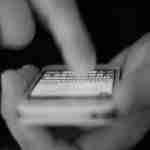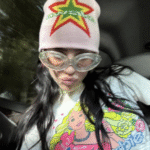Biphobia. Maybe you’ve heard of it. Bisexuality and other sexualities encompassing an attraction to more than one gender or sex feel under attack, now more than ever before. We’ve seen Jojo Siwa attacked online for coming out as queer, followed by her confirming her relationship with Chris Hughes. We’ve seen mention too of Fletcher and now Billie Eilish in Metro, who, it is speculated, are currently dating men, all of whom are female-presenting. But why? And which larger problems does this speak to?
Bisexuality: Struggles
Many members of the queer community identify as bisexual. An estimated 2.2% of women and 1.2% of men identified as bisexual in 2023. Bisexuality, which includes attraction to more than one gender of people, often involves attraction to cisgender, heterosexual men. In cases where a straight-presenting, cisgender-presenting masculine and feminine person dates, they might end up looking like a straight, cisgender couple. For example, suppose a bisexual, transgender woman dates a bisexual, cisgender man. In that case, this may present to the world as a straight relationship, but underneath what the world sees, it is made up of some gorgeous gay scaffolding.

Some may think that this alleviates some of the stress that comes with being out in this world. The privileges that come with being viewed as straight (e.g. not facing discrimination, dating without having to come out) may very well be something that comes along with a straight-presenting relationship, though other challenges may be faced. For someone who is treated as straight but perhaps experiences same-sex celebrity crushes, came out, maybe whose friend network is made up entirely of other gay people, the experience can be isolating. Even if you’re someone who has never had any of these experiences, has never been to Pride or come out, it may still be a difficult experience, perhaps feeling less involved in the community than if you were in a relationship that was less straight-presenting. It has its own, different challenges, essentially, and should not be labelled a purely homosexual experience nor a purely heterosexual experience.
One anecdote we can share about the struggles that come with bisexuality, from one of our contributors (Maz Foster-Reed) is as follows:
“Everyone knows that coming out can be hard enough, but trying to come out as bisexual in the noughties was almost impossible. Mainly because people didn’t seem to believe it was a thing or totally misunderstood who I am because of it. Classic responses – “does your partner mind?” (because people assumed bisexual means horny af), “oh you’re just fake gay” or, only a year or so ago, “can you be bisexual if you’re married?” Yes, you can be bisexual and be sleeping with a man. It’s legit in the definition guys. Ideally, none of us would have to come out at all but if I do ever mention it to anyone then totally feel free to ask questions if it’s all coming from a respectful and genuinely curious place. Ideally, I would just love for everyone to say what my friend said to me once, “oh you’re bi? I had no idea, I just thought you were cool. What did you want to drink again?👌🏽”
Who Else Could This Impact?
It’s not just damaging to those who are attracted to more than one sex or gender. It’s also damaging to anyone who is told that what they are functionally doing in any one moment is all they are in that one moment. Non-binary/transgender / gender non-conforming/gender-fluid people are also at risk here. Having a narrow view of people – that they are only what they seem to the rest of the world – negates who we are on the inside, and for people who are not out as trans yet, not out as bi, present as masculine but are GNC, for example, this outlook is invalidating.
Become a Nonchalant VIP for ad free browsing.

This may not seem like the immediate consequence of a negative response to Jojo Siwa dating a man, for example, but this is the potential to grow that this outlook has, and the connected negativity that comes with it. Bisexual people were always bi, even if they didn’t know it before! To be disappointed that someone is not a lesbian is also invalidating! Calling bi people straight when they date same sex/gender and gay otherwise is bi-erasure. These struggles may be experienced by identities encompassing attraction to more than one sex/gender, polyamorous people, gender-fluid individuals and any identities with the potential to be told to “pick a side” or to be hyper-sexualised, simply for their identities (these are not exhaustive examples and do not mean to exclude any other struggles).
Potential Reasons
Ultimately, this issue goes much further than people talking about celebrities. So why is it that people are disappointed when people come out as something different from what they previously believed?
Article continues below.
One way we might potentially read this is through the lens of representation! When someone identifies as a lesbian, for example, and then comes out as bisexual, they are now not a specific representative of lesbians but of bisexuals. Having representation, particularly from those in the public eye, can feel validating, as well as bring the public’s attention to LGBTQIA+ issues and experiences, relative to gender/sexual identity.
To be transparent, this is through the lens of a pansexual writer. However, we want to use this example as a way of helping to demonstrate that these feelings don’t necessarily come from a malicious place.
Representation of everyone’s issues and experiences helps to break stigmas and start conversations, but it’s not fair to put that pressure on celebrities (who are people, btw) and disrespect their identity. This might not be the main reason, or even any reason, why people are saying these things online, BUT it does represent the fact that disrespect like this can come from a place of fear or negativity. Despite this, it still doesn’t make it cool.
This is not to take away from the fact that lesbians, hands down, deserve way more representation. Perhaps this just goes to show, if just three queer celebrities dating men takes away from this representation, we obviously need more representation all around in the LGBTQIA+ community so as to give us all the opportunity to see ourselves feel seen!
Final Words
Supporting women does not come from taking hits at innocent men they choose to date and be with. It means lifting up their perfectly valid choices and supporting them. Also, our community needs more representation across all identities.
Remember, too, just because you’ve come out once, doesn’t mean it’s easy as pie to come out a second time. There may still be questions, objections, the same sort of stuff that comes with coming out a first time! It’s an amazing step to take to be living in your best self, but it is still coming out, just in a different way. It’s a good idea to remember this when hearing that people in the public eye have come out.
We have to show up for our community, folks! Biphobia is very much not cool, and bisexuality is very much valid. Whoever you date, you’re still who you are. If you’ve got a Pride you’re attending soon, be as unapologetically yourself as you can, for us!
All of our love, always,
Nonchalant x




